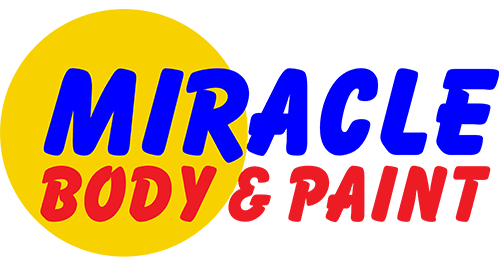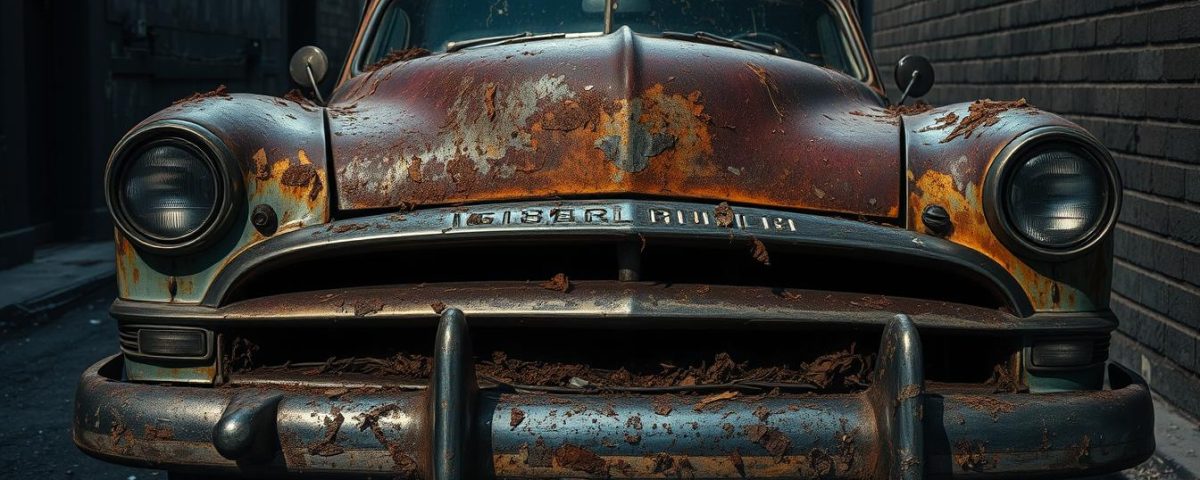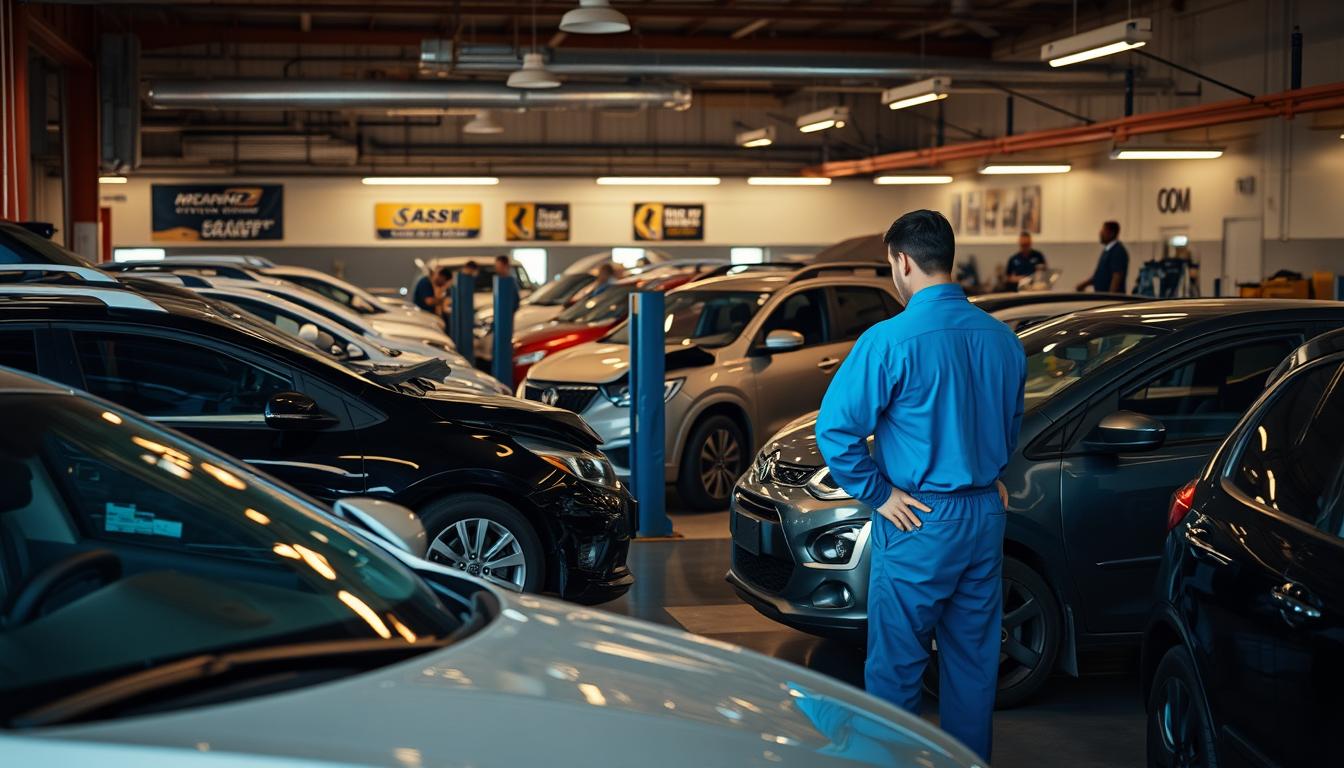
What to Do Right After a Car Accident in San Antonio
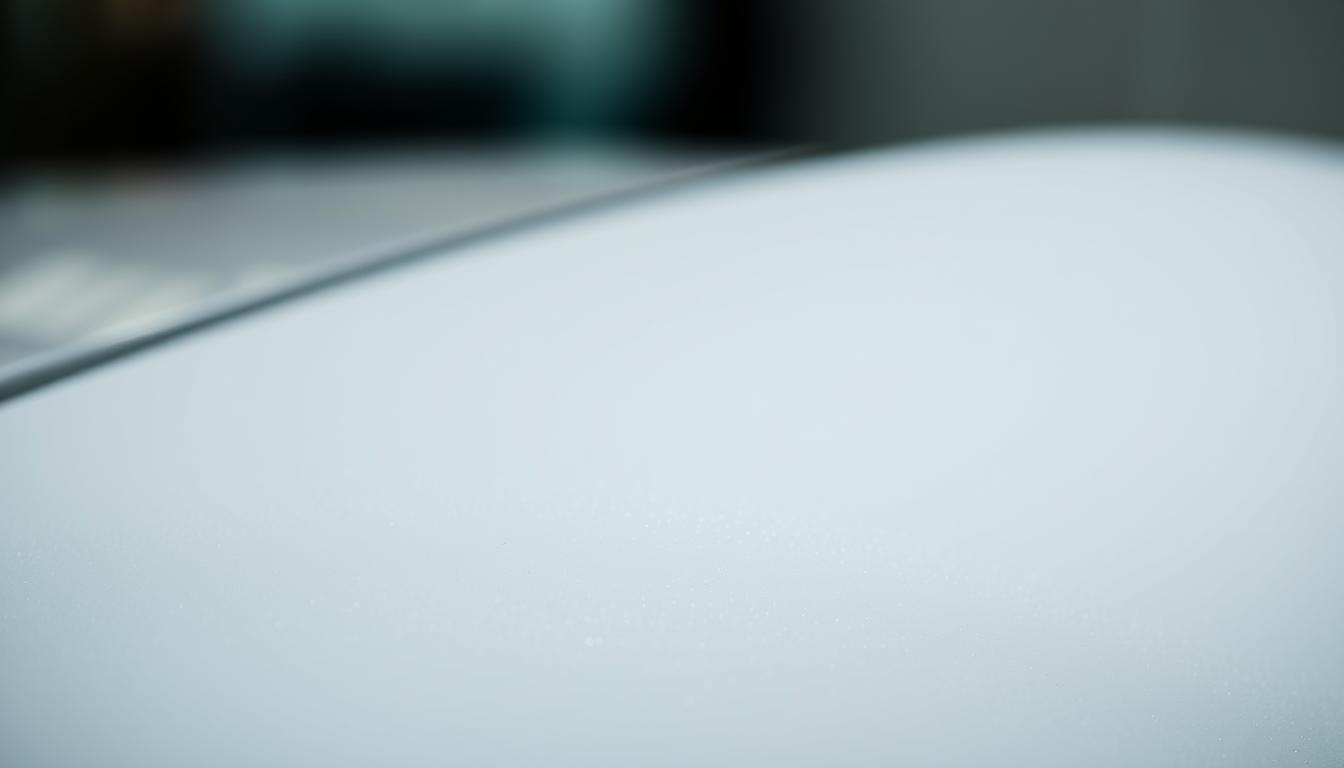
How Long Does Auto Paint Last After Repairs?
Rust damage is a significant concern for car owners, as it can compromise a vehicle’s structural integrity, appearance, and resale value. At Miracle Body and Paint Collision Center, we understand the importance of addressing rust issues promptly.
Rust forms when iron or steel reacts with oxygen and moisture, causing a dirty orange-red-brown coating that corrodes the metal. If left untreated, rust will eat through the metal, leading to costly repair services. Our comprehensive service includes assessing and treating rust damage to restore your car’s original condition.
Understanding the causes and progression of automotive rust is crucial for maintaining your vehicle’s longevity and safety. In this guide, we’ll explore effective prevention and repair methods, including DIY approaches and professional collision repair services available at our center in San Antonio.
Key Takeaways
- Rust damage can significantly compromise your car’s structural integrity and appearance.
- Understanding the causes and progression of rust is essential for effective prevention and treatment.
- DIY approaches can be effective for minor rust issues, while professional services are recommended for more severe cases.
- Miracle Body and Paint Collision Center offers comprehensive rust repair services in San Antonio.
- Prompt treatment is crucial to prevent further damage and costly repair services.
Understanding Vehicle Rust: The Silent Destroyer
The silent destroyer of vehicles, rust, is a corrosion process that can have severe consequences if left unchecked. As a form of corrosion, rust poses a significant threat to the body of your vehicle, weakening its integrity and potentially leading to safety hazards.
What Causes Rust on Vehicles?
Rust on cars is primarily caused by the chemical reaction between iron, oxygen, and moisture. This reaction is accelerated by exposure to road salt, industrial pollutants, and various environmental factors. When moisture accumulates on metal surfaces, it creates an ideal environment for rust to form. Areas prone to moisture accumulation, such as wheel wells, underbody components, and door edges, are particularly vulnerable to rust.
Regular exposure to salt on roads during winter months can significantly increase the risk of rust formation on your car. Similarly, living in coastal areas where saltwater is prevalent can also contribute to rust damage.
Common Types of Automotive Rust
There are several types of automotive rust, each with distinct characteristics and levels of severity. Surface rust affects the paint and top layer of the metal, often appearing as a reddish-brown discoloration. If left untreated, it can progress to scale rust, which penetrates deeper into the metal, causing more extensive damage. The most severe form is penetrating rust, which creates holes in the metal structure, compromising the vehicle’s safety and integrity.
Understanding the causes and types of rust is the first step in implementing effective prevention strategies to protect your vehicle from this destructive process. By being aware of the risks and taking proactive measures, you can maintain your car’s condition, ensure its safety, and preserve its resale value.
Regular maintenance and inspections are crucial in identifying and addressing rust issues early on. By doing so, you can prevent minor problems from becoming major damage that compromises the body and safety of your car.
The Science Behind Automotive Corrosion
Understanding the science behind automotive corrosion is crucial for car owners. Corrosion is not just a surface-level issue; it’s a complex process that can significantly impact a vehicle’s integrity and longevity.
The Chemical Process of Metal Oxidation
The corrosion process in vehicles involves a complex electrochemical reaction where iron in the metal components reacts with oxygen to form iron oxide, commonly known as rust. This process requires an electrolyte, typically water, to facilitate the transfer of electrons, highlighting why moisture is a critical factor in rust formation.
- The presence of salt on roads during winter accelerates this process.
- High humidity levels contribute to increased moisture, fostering an environment conducive to rust.
- When two dissimilar metals come into contact in the presence of an electrolyte, galvanic corrosion occurs, speeding up the rusting process.
Environmental Factors That Accelerate Rust Formation
Environmental conditions play a significant role in the rate of corrosion. In regions like San Antonio, factors such as humidity, temperature fluctuations, and exposure to road salt during winter months can significantly accelerate the corrosion process. Understanding these factors helps vehicle owners recognize high-risk conditions and implement appropriate preventative measures to protect their cars from premature corrosion.
To protect your vehicle, it’s essential to be aware of the environmental conditions that can lead to rust damage. Regular maintenance and inspections can help identify potential issues early on, saving time and reducing the need for costly repairs.
Identifying Early Signs of Rust Damage
Identifying the early signs of rust damage is crucial for maintaining your vehicle’s integrity and longevity. Rust can compromise the structural integrity of your car, leading to costly repairs if not addressed promptly.
Visual Indicators of Surface Rust
Surface rust often exhibits visible signs that should not be ignored. Look out for:
- Small bubbles forming under the paint, indicating moisture penetration.
- Orange-brown discoloration, a clear sign of rust formation.
- Flaking or chipping paint, particularly around wheel wells, door edges, and the undercarriage.
These visual indicators are often the first signs of rust damage and should be inspected closely.
Warning Signs of Structural Rust
Structural rust can be more dangerous as it compromises the vehicle’s framework. Be aware of:
- Soft spots in the metal, which can indicate advanced rust damage.
- Unusual rattling sounds, suggesting that rust has weakened structural components.
- Visible holes in components that should be solid and intact.
These signs indicate that rust has progressed beyond surface level and requires immediate attention.
How to Inspect Your Vehicle for Rust
Regular inspections are crucial for early detection. When inspecting your vehicle for rust, make sure to check hidden areas such as:
- The underside of the vehicle.
- Inside wheel wells.
- Around door seams.
- Under floor mats where moisture can accumulate.
It’s also recommended to take your car for a professional inspection at least once a year, especially after winter months when exposure to road salt and moisture is highest. Early detection can save you from extensive repair costs down the line.
The Three Stages of Rust Progression
Understanding the stages of rust progression is crucial for car owners to address the issue effectively. Rust damage on a vehicle can progress through various stages, each requiring different approaches to repair and maintenance.
Surface Rust: The Initial Stage
Surface rust is the first stage of rust progression, affecting only the top layer of the metal. It is relatively easy to address if caught early. At this stage, the rust can be removed with simple DIY methods, and the area can be treated to prevent further damage. Regular inspection of your car’s surface can help identify rust at this early stage.
- Surface rust is characterized by a reddish-brown discoloration on the metal surface.
- It can be caused by exposure to moisture, salt, and other environmental factors.
- Prompt action can prevent the rust from advancing to more severe stages.
Scale Rust: When Corrosion Deepens
As rust advances to the scale stage, the corrosion penetrates deeper into the metal, causing it to flake and creating a layered appearance. This indicates more serious damage that requires prompt attention. Scale rust is a sign that the rust has progressed beyond the surface level and is now affecting the metal’s integrity.
- Scale rust is identified by the flaking of metal and a rough surface texture.
- The repair process at this stage may involve sanding and applying rust-inhibiting coatings.
- Neglecting scale rust can lead to more costly repairs down the line.
Penetrating Rust: The Critical Stage
The most severe form of rust is penetrating rust, which occurs when corrosion has completely eaten through the metal, creating holes and compromising the structural integrity of the affected components. At this stage, the damage is significant, and the repair process can be complex and costly.
- Penetrating rust can lead to significant safety issues if not addressed promptly.
- Repairing penetrating rust often requires professional assistance and may involve replacing damaged parts.
- Understanding the time frame for rust progression and taking preventive measures can help avoid reaching this critical stage.
In conclusion, recognizing the three stages of rust progression—surface rust, scale rust, and penetrating rust—is essential for determining the appropriate repair process for your vehicle. By understanding these stages, car owners can take timely action to prevent minor issues from becoming major problems, ensuring their car’s longevity and safety.
How Rust Compromises Vehicle Safety
One of the most significant risks to vehicle safety is rust, which can affect various aspects of the car’s structure and functionality. Rust can compromise the safety of a vehicle in multiple ways, making it a critical concern for drivers.
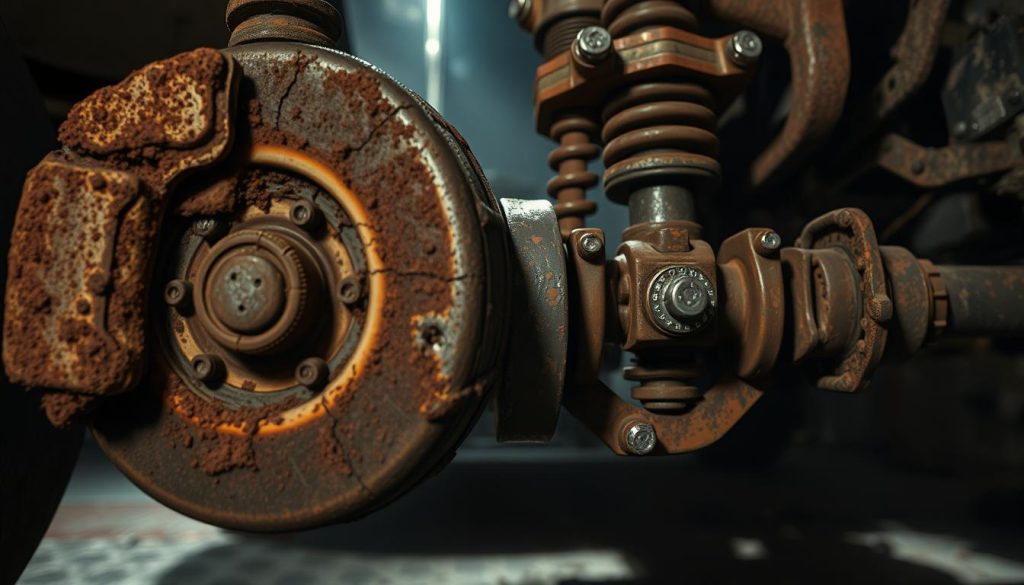
Structural Integrity Concerns
The primary concern with rust is its impact on the structural integrity of the car. When rust weakens metal components, they may fail during normal driving or, more critically, during an accident. This weakening can lead to a loss of control or even a catastrophic failure of critical vehicle parts.
Modern vehicles are designed with crumple zones and specific structural elements to absorb impact forces during collisions. However, rust can undermine these safety features by altering how the vehicle body responds to impact, potentially leading to increased damage in the event of a crash.
Impact on Brake Lines and Fuel Systems
Critical safety systems like brake lines and fuel systems are particularly vulnerable to rust damage. When rust compromises these systems, it can lead to brake failure or fuel leaks, posing serious hazards to drivers and passengers. Regular inspections of these critical components are essential to prevent such failures.
Rust can cause brake lines to corrode, potentially leading to brake failure. Similarly, rust damage to fuel systems can result in leaks, which can be dangerous and even lead to fires.
Chassis and Frame Vulnerabilities
The chassis and frame of a vehicle serve as the foundation for all other components. Rust in these areas can compromise the entire car’s structural integrity and crash protection capabilities. When the chassis or frame is weakened by rust, the vehicle body may not respond as intended during a collision, potentially leading to more severe consequences.
The Financial Impact of Ignoring Rust Damage
Rust damage is not just a cosmetic issue; it can have far-reaching financial consequences. When left unchecked, rust can compromise the integrity of your vehicle, leading to costly repairs and potentially even safety hazards.
Decreased Resale Value
One of the immediate financial impacts of rust damage is the reduction in your car’s resale value. Even minor rust spots can deter potential buyers, resulting in a lower sale price. For instance, a car with visible rust damage may be perceived as having underlying structural issues, making it less desirable. As a result, ignoring rust damage can cost you thousands of dollars when you decide to sell your vehicle.
Escalating Repair Costs Over Time
The longer you wait to address rust damage, the more expensive the repairs become. Initially, rust may be a surface-level issue that can be easily treated. However, as time passes, it can penetrate deeper into the metal, causing more extensive damage that requires costly repairs. By addressing rust early, you can save money on repair costs and prevent further damage to your car’s structure.
Insurance Implications of Rust-Related Damage
Insurance companies often view rust damage as a maintenance issue rather than an accident-related problem. This means that standard auto insurance policies typically won’t cover rust repair costs unless they are directly related to a covered incident. As a result, vehicle owners are usually responsible for the costs associated with rust repairs, making it essential to address the issue promptly to avoid significant out-of-pocket expenses.
By understanding the financial implications of rust damage, you can take proactive steps to protect your vehicle’s value and safety. Regular maintenance and early intervention are key to preventing the costly consequences of rust damage.
DIY Rust Prevention Techniques
As a car owner, you can significantly reduce the risk of rust damage by adopting a few straightforward DIY rust prevention techniques. Rust can compromise the integrity of your vehicle, but with regular maintenance and the right products, you can protect your car from corrosion.
Regular Washing and Waxing Routines
Implementing a regular washing routine is one of the most effective DIY rust prevention techniques for your vehicle. Washing your car, especially during winter months or after exposure to road salt, helps remove corrosive substances that can damage the paint and metal. Applying a quality car wax every three to four months creates a protective barrier against moisture and contaminants, significantly reducing the risk of rust formation. Regular waxing also helps maintain your car’s paint integrity, keeping it looking newer for longer.
- Wash your car regularly, paying extra attention during winter months or after exposure to road salt.
- Apply a quality car wax every three to four months to create a protective barrier.
- Ensure thorough coverage, including often-overlooked areas like the undercarriage and wheel wells.
Protective Coatings and Sealants
In addition to regular washing and waxing, applying protective coatings and sealants can provide long-lasting protection for vulnerable areas of your car. Protective coatings and sealants designed specifically for automotive use can be applied to areas such as the undercarriage, wheel wells, and exposed metal components. These products help shield your vehicle from moisture and contaminants, reducing the risk of rust damage.
- Choose protective coatings and sealants designed for automotive use.
- Apply these products to vulnerable areas like the undercarriage and wheel wells.
- Follow the manufacturer’s instructions for application and reapplication.
Seasonal Maintenance Tips for Rust Prevention
Seasonal maintenance is crucial for effective rust prevention. During high-risk periods, such as winter, it’s essential to take extra precautions. Applying undercoating before winter can provide an additional layer of protection against salt and moisture. Regularly rinsing the undercarriage during salt-treatment seasons can also help remove corrosive substances.
- Apply undercoating before winter to protect against salt and moisture.
- Rinse the undercarriage regularly during salt-treatment seasons.
- Inspect your vehicle regularly for signs of rust or damage.
By following these DIY rust prevention techniques, you can significantly extend the life of your car and maintain its integrity. For first-time rust preventers, starting with basic techniques like regular washing and waxing can make a significant difference without requiring specialized skills or equipment.
When to Attempt DIY Rust Repair
DIY rust repair is a viable option for minor rust issues, but it’s essential to understand its limitations. When dealing with surface-level rust that hasn’t deeply penetrated the metal, a DIY approach can be effective. This typically involves small spots with minimal bubbling or flaking.
Tools and Materials for Minor Rust Repair
To successfully repair minor rust on your car, you’ll need the right tools and materials. These include sandpaper of various grits, rust converter, body filler, primer, color-matched paint, clear coat, and safety equipment like gloves and a respirator. Having the correct tools ensures that the repair is done efficiently and effectively.
- Sandpaper (various grits)
- Rust converter
- Body filler
- Primer
- Color-matched paint
- Clear coat
- Safety equipment (gloves, respirator)
Step-by-Step Process for Surface Rust Removal
The process of removing surface rust involves several key steps. First, clean the affected area thoroughly. Then, use sandpaper or wire brushes to remove loose rust. Next, apply a rust converter to neutralize any remaining rust. If necessary, fill any depressions with body filler and sand it smooth. Finally, apply primer, paint, and clear coat to protect the metal and restore the vehicle’s appearance.
- Clean the affected area
- Remove loose rust with sandpaper or wire brushes
- Apply rust converter
- Fill depressions with body filler (if necessary)
- Apply primer, paint, and clear coat
Limitations of DIY Rust Repair Methods
While DIY rust repair can be effective for minor issues, it has significant limitations. For instance, dealing with structural rust, large affected areas, or rust in hard-to-reach places can be challenging without professional equipment and expertise. It’s crucial to honestly assess your skill level and the extent of the damage before deciding between DIY repair and professional service to ensure that repairs are done right the first time.
For the best results, it’s essential to understand when to attempt a DIY rust repair and when to seek professional help. By doing so, you can protect your vehicle’s value and safety.
Professional Rust Repair San Antonio Services
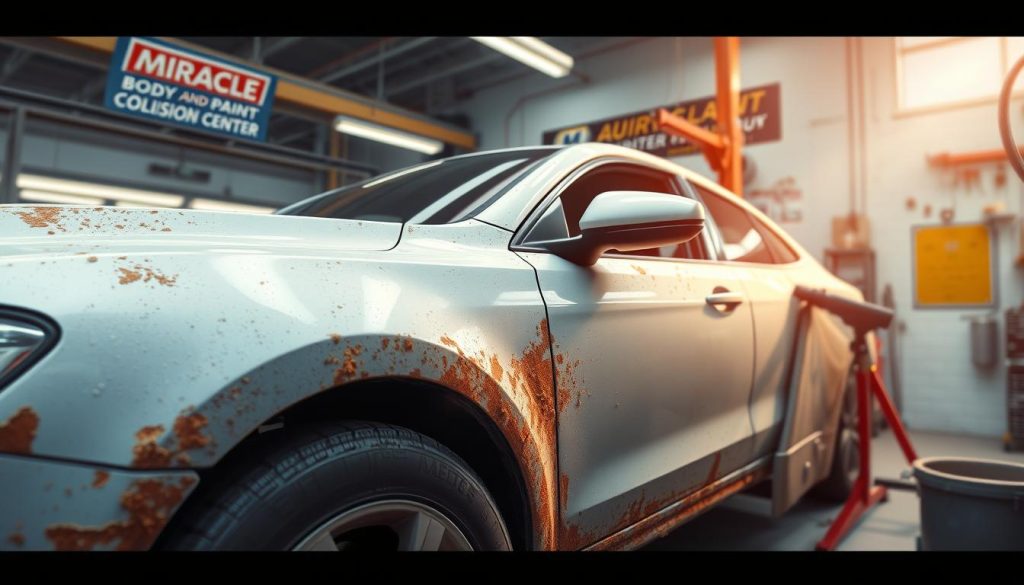
Miracle Body and Paint Collision Center offers top-notch professional rust repair services in San Antonio, utilizing advanced techniques to restore vehicles. Our team is equipped to handle rust damage of varying severity, ensuring that your car is protected and maintained.
Advanced Techniques Used by Professional Technicians
Professional rust repair services in San Antonio utilize advanced techniques that go beyond DIY methods. Our technicians are trained in methods such as media blasting, chemical rust removal, and specialized welding for structural components. At Miracle Body and Paint Collision Center, we follow a systematic eight-step process: damage assessment, area preparation, rust removal, priming, filler application, sanding and re-priming, color-matched painting, and clear coat application.
Benefits of Professional Rust Treatment
Choosing a reputable body shop like Miracle Body and Paint Collision Center for rust repair ensures access to industrial-grade equipment and materials, resulting in longer-lasting repairs and better aesthetic results. Our technicians are trained to identify the full extent of rust damage, often discovering hidden corrosion that might be missed during visual inspections. By addressing the root causes of corrosion, we prevent recurrence and provide a durable solution.
Cost Considerations for Professional Rust Repair
While professional rust repair services may initially seem more expensive than DIY approaches, they often prove more cost-effective in the long run. By utilizing advanced techniques and industrial-grade materials, we ensure that the repairs are durable and long-lasting, reducing the need for future interventions.
The Professional Rust Repair Process
At Miracle Body and Paint Collision Center, our professional rust repair process is designed to restore your vehicle to its original condition. We understand that rust damage can compromise the safety and integrity of your vehicle, which is why we follow a meticulous and thorough repair process.
Comprehensive Damage Assessment
Our rust repair process begins with a comprehensive damage assessment to evaluate the full extent of the corrosion. This involves a visual inspection, electronic scanning, and sometimes partial disassembly to identify all areas affected by rust. Our skilled technicians use specialized equipment to detect even the slightest signs of rust, ensuring that no damage is overlooked.
- Visual inspection to identify surface rust and corrosion
- Electronic scanning to detect hidden rust damage
- Partial disassembly to access hard-to-reach areas
Rust Removal and Metal Treatment
Once the extent of the rust damage is assessed, our technicians employ specialized tools and techniques for rust removal, including media blasting, chemical treatments, and precision grinding. This ensures that all traces of corrosion are eliminated before proceeding with repairs. We then apply professional-grade rust inhibitors and converters that chemically bond with any microscopic rust particles, neutralizing them and preventing future oxidation.
Refinishing and Protective Coating Application
The refinishing phase involves precision application of primer, color-matched paint, and clear coat using professional spray equipment in a controlled environment. This ensures perfect adhesion and finish, restoring your vehicle’s original appearance. Finally, we apply advanced sealants and undercoatings that provide long-term protection against environmental factors that cause rust, doing an amazing job to safeguard your vehicle.
- Precision application of primer, paint, and clear coat
- Use of professional spray equipment in a controlled environment
- Application of advanced sealants and undercoatings for long-term protection
By following this rigorous rust repair process, our service at Miracle Body and Paint Collision Center ensures that your vehicle is restored to a safe and reliable condition, maintaining its value and performance.
Specialized Equipment for Effective Rust Repair
Our team at Miracle Body and Paint Collision Center relies on specialized equipment to deliver top-notch rust repair services. This equipment enables our technicians to provide quality repairs that meet or exceed industry standards for rust remediation.
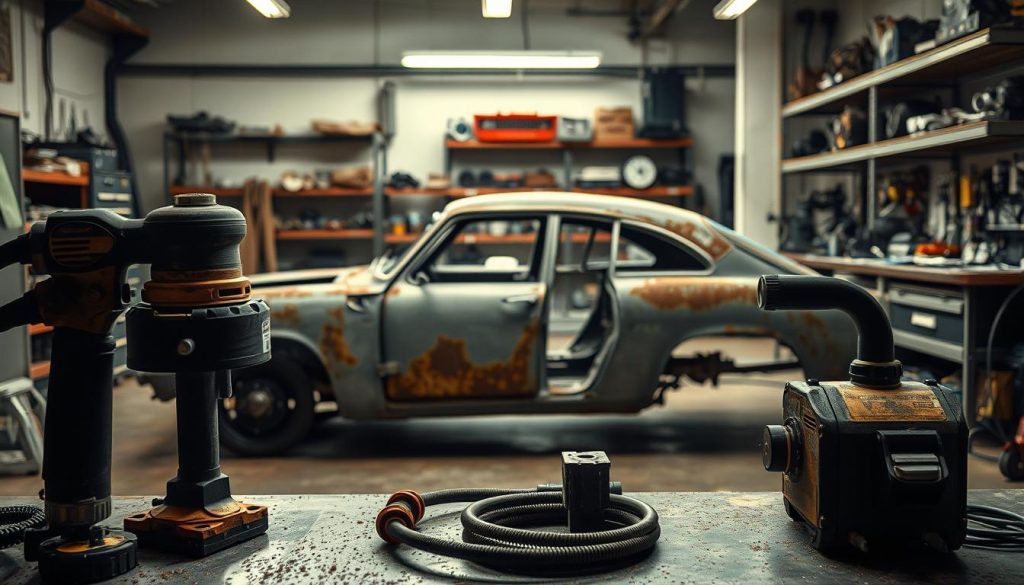
Cutting-Edge Tools Used by Professionals
We utilize professional-grade media blasting systems that allow for complete rust removal without damaging surrounding metal, providing a clean surface for treatment. This level of precision is crucial for ensuring the longevity of the repair and the overall integrity of the vehicle.
Additionally, our shop is equipped with computer-controlled paint mixing systems that ensure perfect color matching for seamless repairs. This technology eliminates the visible “repair spots” commonly associated with DIY rust fixes, maintaining the vehicle’s original appearance.
Advanced Rust Detection Technology
Advanced rust detection technology plays a critical role in identifying hidden corrosion in enclosed panels and structural components. Our technicians use moisture meters and ultrasonic thickness gauges to detect rust that might be missed during visual inspections.
Furthermore, our shop utilizes industrial-grade drying and curing equipment that accelerates the repair process while ensuring proper hardening of fillers, primers, and paints. This not only enhances the durability of the repair but also ensures that the vehicle is returned to the customer in a timely manner, ready for safe operation.
By investing in top-notch specialized equipment, we are able to offer a service that stands out in terms of quality and reliability, safeguarding the vehicle’s safety and value.
Why OEM Standards Matter in Rust Repair
When it comes to rust repair, adhering to OEM standards is crucial for maintaining your vehicle’s original integrity. At Miracle Body and Paint Collision Center, we emphasize the importance of following these standards to ensure that repairs meet the manufacturer’s quality and safety expectations.
Manufacturer Guidelines for Rust Treatment
Manufacturer guidelines for rust treatment are designed to work with the specific metals and coatings used in their vehicles. By following these guidelines, we can ensure that rust repairs are done using approved products, techniques, and procedures. This not only maintains the vehicle’s structural integrity but also preserves its safety features. Using genuine OEM parts helps maintain your manufacturer’s warranty and protect future resale value.
- Adhering to OEM standards during rust repair ensures that your vehicle maintains its original design specifications.
- Miracle Body and Paint Collision Center follows these exacting standards and uses OEM parts whenever possible.
Quality Assurance in Professional Repairs
Quality assurance is a critical component of professional rust repair services. At Miracle Body and Paint Collision Center, we implement multiple inspection points throughout the repair process to ensure that all work meets both OEM standards and our own rigorous quality benchmarks. This attention to detail guarantees that your vehicle is restored to its original condition, with a focus on both aesthetics and safety.
- Quality assurance includes final verification that all work meets OEM standards.
- Using OEM-approved methods and materials helps preserve your vehicle’s warranty coverage and maintains its long-term value.
By choosing a service provider that adheres to OEM standards, such as Miracle Body and Paint Collision Center, you can trust that your vehicle’s rust repair will be done to the highest quality standards, ensuring both safety and value.
Rust-Proofing Options for Long-Term Protection
At Miracle Body and Paint Collision Center, we understand the importance of protecting your vehicle from rust damage. Rust-proofing is a critical aspect of maintaining your car’s integrity and longevity, especially in a city like San Antonio with varying climate conditions. We offer comprehensive rust-proofing options designed to provide long-term protection for your vehicle’sbody and paint.
Electronic Rust Protection Systems
Our Electronic Rust Protection Systems utilize low-voltage current to disrupt the electrochemical process that causes rust, providing an invisible shield that protects your car’s metal components without altering its appearance. This innovative service is particularly effective in safeguarding vulnerable areas prone to moisture accumulation. By investing in our Electronic Rust Protection Systems, you’re taking a proactive step towards preserving your vehicle’s structural integrity.
Undercoating and Cavity Waxing
Our professional undercoating and cavity waxing services apply specialized compounds to vulnerable areas such as wheel wells, undercarriage components, and enclosed body sections where moisture can accumulate and accelerate corrosion. These treatments are designed to provide a robust barrier against rust formation, ensuring your vehicle remains protected. By addressing these high-risk areas, we help maintain your car’s overall health and appearance.
Scheduled Maintenance Plans for Ongoing Protection
To ensure continuous protection against rust formation, we offer scheduled maintenance plans tailored to your specific vehicle and driving conditions. These plans include regular inspections and reapplication of protective treatments, providing you with peace of mind knowing your car is safeguarded against rust damage. By partnering with Miracle Body and Paint Collision Center, you’re investing in the long-term health and value of your vehicle, backed by our expert service and commitment to quality.
Common Misconceptions About Rust Repair
Rust repair myths can be detrimental to maintaining your car’s integrity. At Miracle Body and Paint Collision Center, we have seen many vehicle owners fall prey to misconceptions that can lead to inadequate repairs and further damage.
Debunking Rust Repair Myths
Several myths surround rust repair, often leading to confusion among car owners. Here are a few common misconceptions:
- One common misconception is that all rust repairs are temporary fixes.
- Many vehicle owners believe minor rust spots are merely cosmetic issues.
- There’s a persistent myth that DIY rust repair kits are equivalent to professional services.
At Miracle Body and Paint Collision Center, we debunk these myths by providing professional repairs that address the root cause of the corrosion, not just the symptoms.
Understanding Realistic Expectations for Repairs
Understanding the realistic expectations for rust repair is crucial. Some car owners expect that once repairs are done, their vehicle will never develop rust again. However, the reality is that ongoing maintenance and preventative measures are essential for long-term protection.
It’s also important to recognize that the repair process may require more extensive work than initially visible damage suggests, as corrosion often extends beyond what can be seen on the surface. By understanding this, vehicle owners can better appreciate the time and effort required for effective rust repair.
At Miracle Body and Paint Collision Center, we ensure that our clients have realistic expectations about the vehicle repairs process, and we work diligently to provide high-quality repairs that stand the test of time.
Choosing the Right Rust Repair Service in San Antonio
With numerous rust repair services in San Antonio, it’s essential to know what to look for in a reliable shop. At Miracle Body and Paint Collision Center, we understand the importance of selecting a trustworthy service provider to restore your vehicle to its original condition.
Key Qualifications to Look For
When searching for a rust repair service in San Antonio, look for establishments with a proven track record and positive customer reviews that specifically mention rust repair quality. Some key qualifications to look for include:
- I-CAR and ASE certifications, which indicate a high level of expertise in collision repair and rust treatment
- Manufacturer approvals, ensuring that the repair service is familiar with the specific requirements of your vehicle’s make
- Technicians with specialized training in corrosion treatment and prevention techniques
By choosing a shop with these qualifications, you can ensure that your vehicle is in good hands.
Questions to Ask Before Hiring a Rust Repair Specialist
Before hiring a rust repair specialist, it’s crucial to ask the right questions to ensure you’re getting the best service possible. Some questions to consider include:
- What is your assessment process for determining the extent of the rust damage?
- What repair methods do you use, and are they OEM-approved?
- Do you offer a warranty on your repairs, and what’s covered?
By asking these questions, you can gain a better understanding of the repair service’s capabilities and make an informed decision.
Red Flags to Watch Out For
When selecting a rust repair service in San Antonio, there are several red flags to watch out for. Be wary of shops that:
- Promise unrealistically quick or cheap fixes
- Lack proper certification or manufacturer approvals
- Are unwilling to provide references or examples of previous rust repair work
By being aware of these potential pitfalls, you can avoid choosing a subpar repair service and ensure that your vehicle receives the best possible care.
Conclusion: Protecting Your Vehicle’s Value and Safety
With rust posing a significant threat to vehicle longevity, it’s vital to adopt a proactive approach to rust prevention and repair. The detrimental effects of rust on your car’s structural integrity, safety features, and overall value cannot be overstated.
At Miracle Body and Paint Collision Center, our experienced team is committed to providing San Antonio drivers with comprehensive rust repair solutions. We utilize industry-leading techniques and OEM parts to ensure quality repairs that restore your vehicle to its optimal condition, whether you’re dealing with minor surface rust or more extensive structural corrosion.
Proactive rust prevention and timely repair are essential investments in maintaining your vehicle’s safety and value throughout its lifespan. Our team takes the time to educate vehicle owners about rust prevention strategies and provides transparent communication throughout the repair process, which is why many of our customers would recommend our services.
Don’t wait until rust compromises your vehicle’s safety or requires extensive repairs. Contact Miracle Body and Paint Collision Center today to schedule an inspection and take the first step toward protecting your automotive investment. We have two convenient locations to serve you in San Antonio: our Northwest location in Leon Valley at 6217 Grissom Rd. (210-680-1987) and our Northeast location at 4650 Walzem Rd. (210-858-3630).
By choosing our top-notch collision repair services, you can trust that your vehicle is in good hands. We’re committed to providing quality repairs and exceptional customer service, ensuring that you’re informed throughout every step of the repair process.

